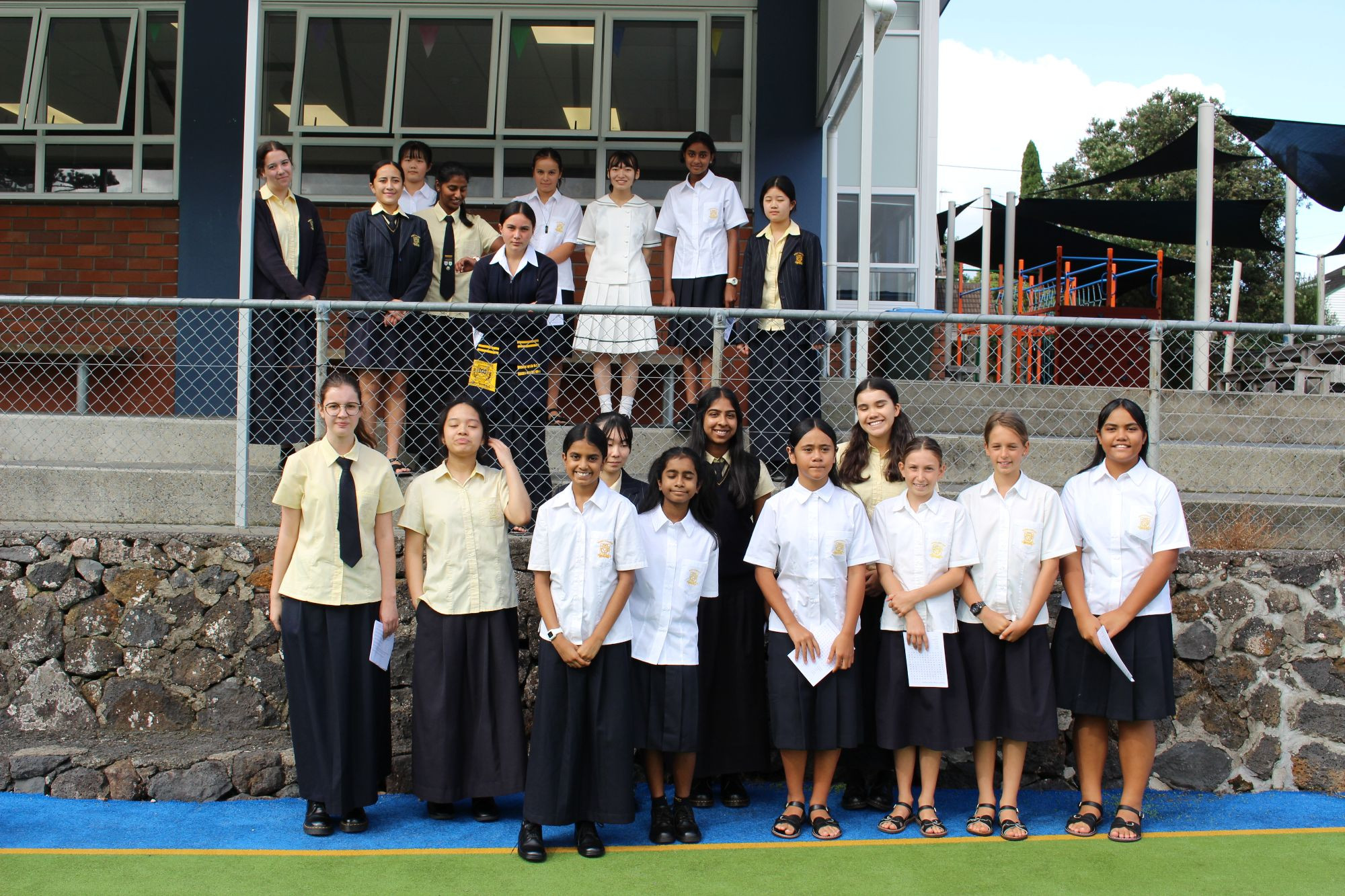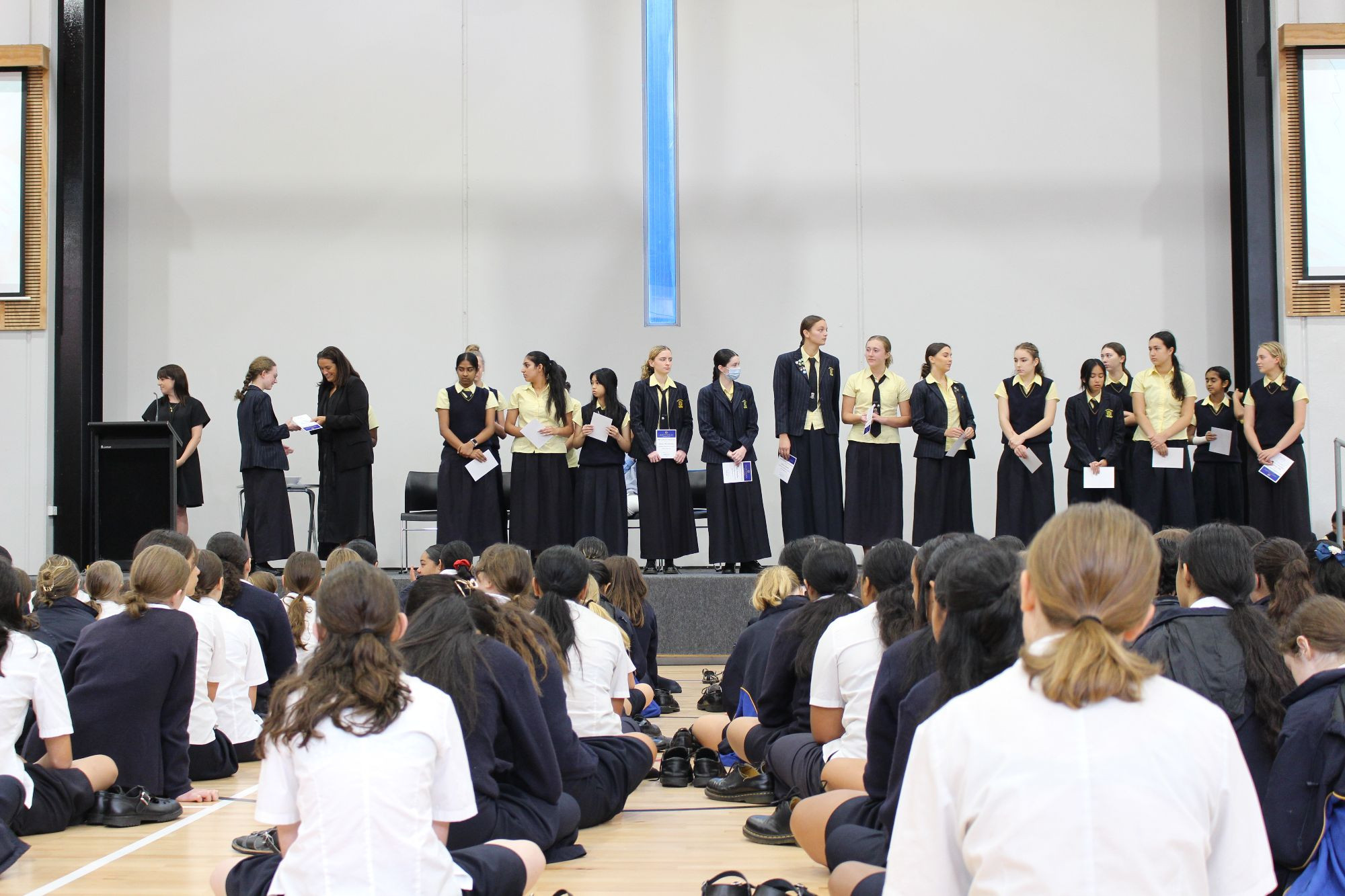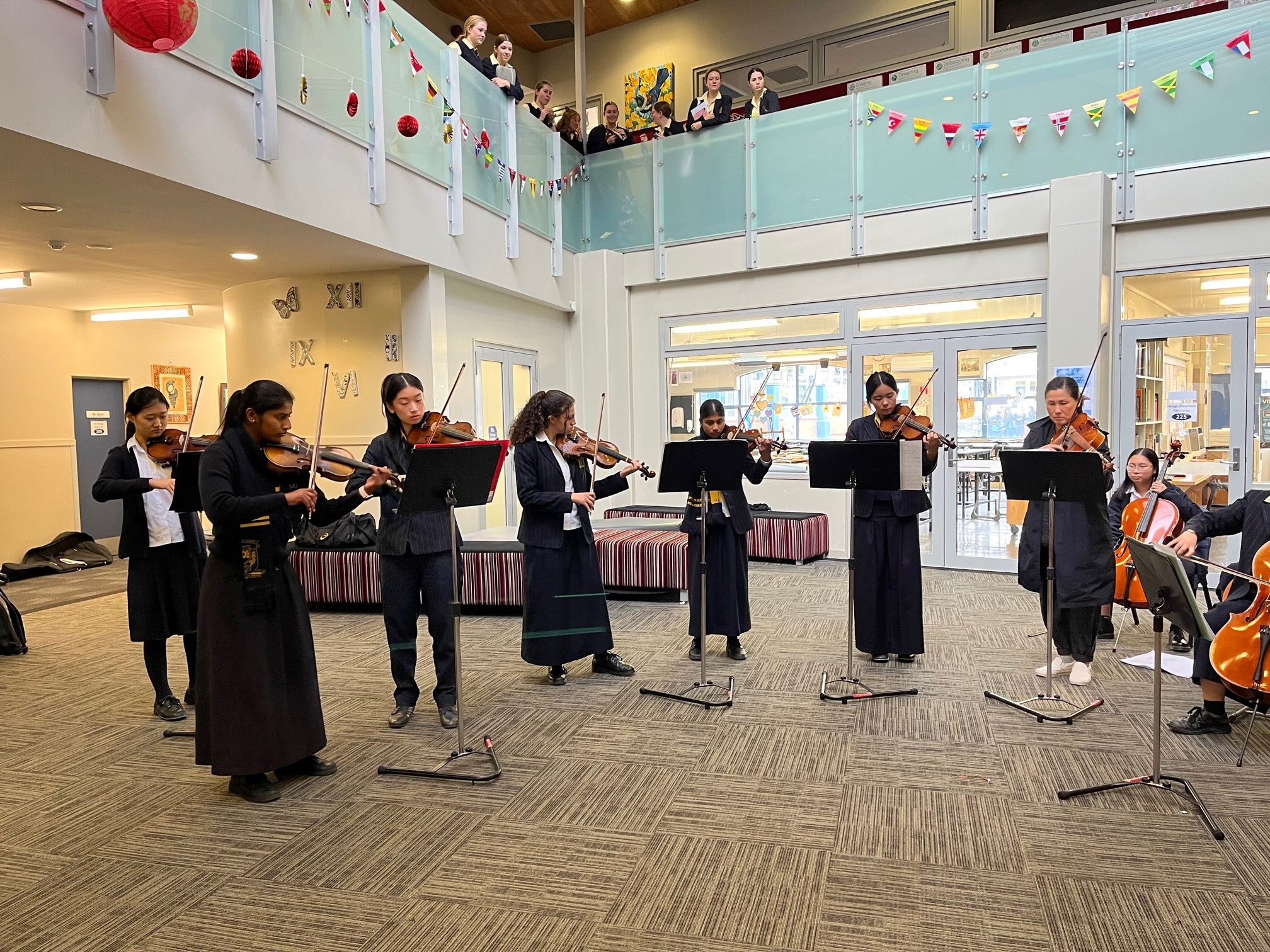"Ka whāngaia, ka tipu, ka puāwai."
"Nurture it and it will grow, then blossom."
Whakatauki, Māori Proverb
Marist College offers a range of opportunities for our young women to succeed.
We offer 33 different subject choices by the time our students reach Year 13.


Teachers Can | Teachers Cannot | Why / Why Not |
Let you know if you are on the right track to meet the standard / checkpoint and refer you back to the task/criteria if there are omissions or errors to improve. | Indicate what grade you will get. | It is a breach of assessment conditions. NZQA says we cannot do this. This may vary from subject to subject. |
Indicate skills/area for focus. | Indicate everything you are doing right/wrong. | It is then not an authentic, independent piece of your work. This means you would not be able to submit it for assessment. |
Give you holistic feedback. | Rewrite the content or suggest specific ideas. | This makes sure you have included the things you need to meet the standard. We cannot do the work or thinking for you as this undermines the assessment. |
Do a classroom activity or model the skill on the board and give you time to fix it in your own work. | Fix the errors, circle them or show you where they are. The teacher cannot work on your assessment piece. | Authenticity. It must be your own work. |
Give you feedback when you meet a checkpoint or provide a draft in advance of the assessment date. ‘In general feedback and feedforward should become less specific the closer the student is to the assessment date’ NZQA. | Give you feedback close to the due date or give you feedback if you miss a checkpoint. If your class is given a specific number of checkpoint(s), you cannot ask for further opportunities for feedforward. | This is unfair on you as you will not have enough time to implement the feedback. It is unfair on other students who met the checkpoint. It is also an unfair expectation on the teacher. |
Model the different criteria and how to achieve them. | Use your content and ideas to model how you can meet each criteria. | The teacher is achieving the grade instead of you. |
Can give you examplers of the task which meet different grade criteria, for reading in class. | Allow you to take home exemplars of student work from previous years on the same topic/text. | Can lead directly to plagiarism, either unwittingly or otherwise. |
Set checkpoints for the class to meet (if these are not already set in your course outline). They may also offer conferencing one-on-one (verbal feedback) as part of the feedback process. | Give everyone feedback or conference with everyone at exactly the same time. | Teachers have many classes and many students. This is physically impossible. Checkpoints are set across classes to ensure equity. Oral (verbal) feedback is considered the same as written feedback. |
Reteach specific areas of weakness for the whole class, if a weakness is identified. | Give you feedback on the same draft with minor changes or provide you feedback every time you do a draft. | It needs to be fair and reasonable for the teacher and the class. Perhaps consider asking the teacher to address a specific skill with the class so that you can apply it to your own understanding / draft. |
Identify clearly if you are plagiarising or missing key components such as a bibliography or have made inappropriate text choice. | Teachers have an obligation to ensure the work they assess is authentically the students own. | |
Can indicate you are not meeting checkpoints, and not completing tasks towards achievement in an assessment. | Can challenge you if the changes between drafts indicate outside intervention. |
In the 11 years since its inception, our results have reflected the suitability of NCEA for our students as they grow in success. The certificate endorsement at each level and course endorsement has proven to be motivating for the girls as they strive to achieve personal excellence.
Marist College continues to shine in the Scholarship Examinations offered at the end of Year 13. Candidates for these scholarships are drawn from a range of differing qualification systems. Thus, our relative success at this level is evidence to us that learning and assessment under NCEA is both robust and comparable.
To further assist parents and students with questions on NCEA, some factsheets on Understanding NCEA are available on the NZQA website: www.nzqa.govt.nz/ncea-thefacts



Online education provider LearnCoach has made its platform free for NCEA students. To register your child for free access visit learncoach.com
Dream grades for NCEA - LearnCoach' - LearnCoach makes study fast and simple. Our courses are the most efficient way to dominate any subject and get your best results ever.
There are two types of Scholarships for which our senior students are eligible.
These scholarships are offered either by private institutions or trusts or by Universities and Polytechnics. It is the latter group which make up the bulk of what is available at undergraduate level. In most cases, these scholarships are applied for online in the months of July and August. Attached is a flow chart of the process which the girls should follow should they wish to apply. Please note that in a few cases, there is just one recipient from the school and these are not self-nominated.
For any queries in relation to the scholarship requirements for a particular subject, please contact the classroom teacher to clarify.
For any general enquiries or clarifications, please contact the Deputy Principal Curriculum- [email protected]
This is a Scholarship Award which is open to senior students to enter through NZQA, who are the administrators. There is currently an additional charge to enter for scholarship.
Scholarship is available in most of the subjects offered in Year 13, but the nature of the assessment varies. In some, the submission involves a portfolio of work, in others a three-hour examination is scheduled alongside the NCEA examinations. If a student is successful in achieving a scholarship, she will receive a monetary award of $500. If she should be successful in three, then the award becomes $2000 per annum for three years. It is also possible to achieve an outstanding grade in scholarship and if a student achieves two outstanding grades in at least three scholarships in the year, she will receive $5000 per annum for three years.
Scholarship awards are not a qualification, but they are a very real signal of academic excellence and therefore carry weight in relevant selection processes. They are an extension opportunity for students and do encourage students to think more deeply and widely in the context.
At Marist College, students can sit scholarship in most subjects, with the support of their teachers or of the department. Not only does the nature of the assessment vary but so too does the content- in some subjects it is closely aligned to NCEA and can be taught in conjunction with class work, while in others it is an entirely different content which will require much more additional learning. Students are encouraged to discuss with their teachers the nature and content of the scholarship assessment in a given subject, in the first few weeks of school so they can plan to maximise their opportunity for success.